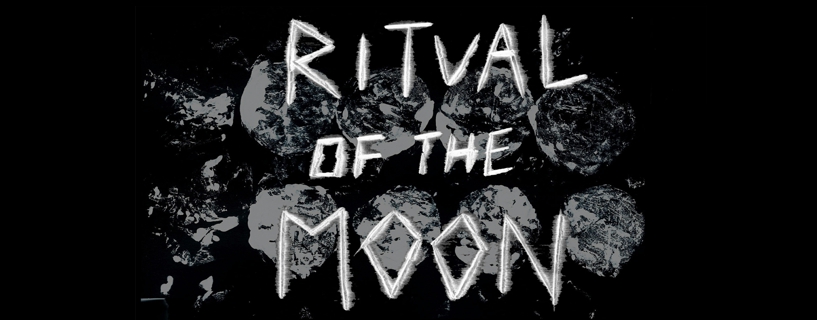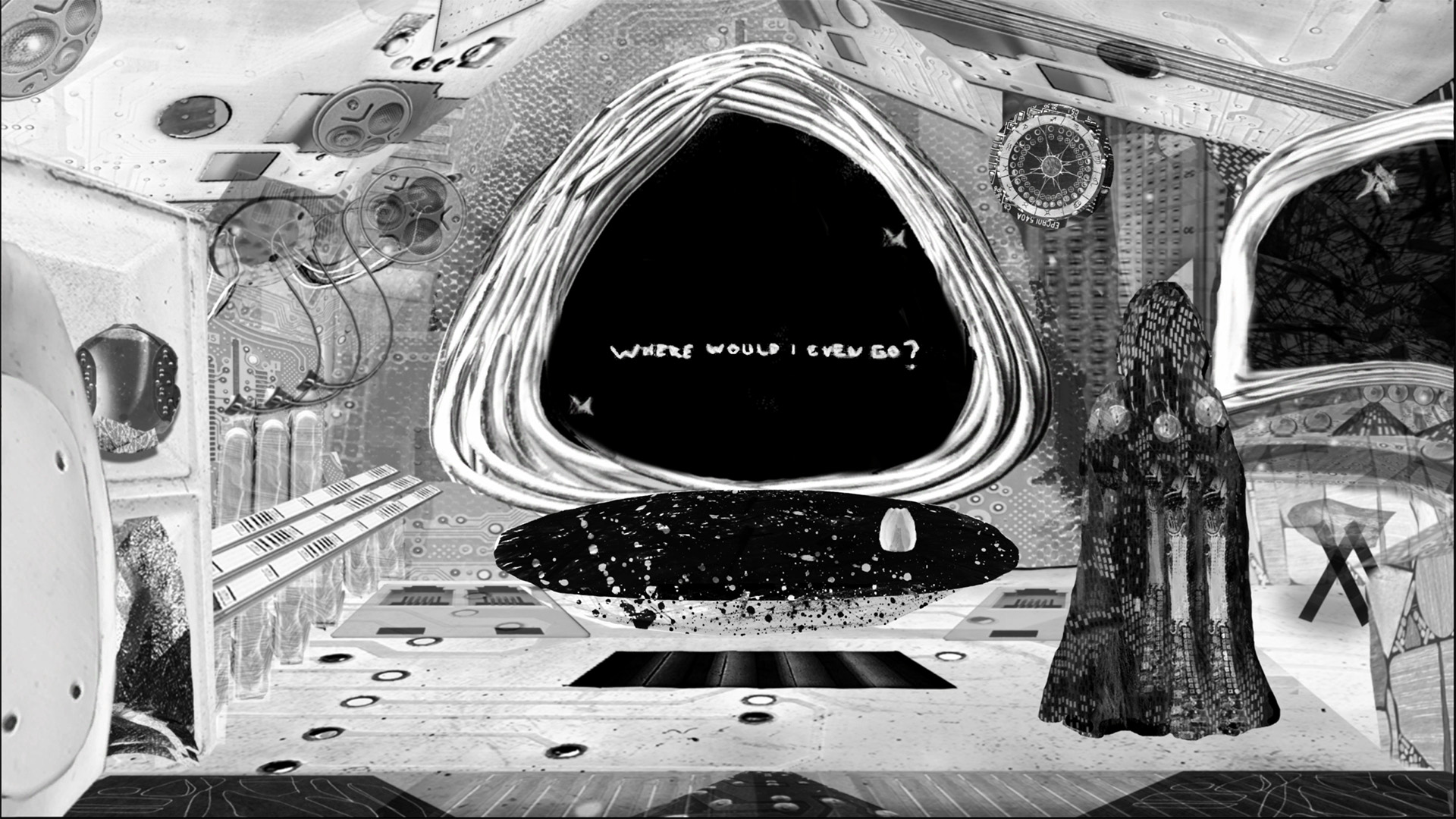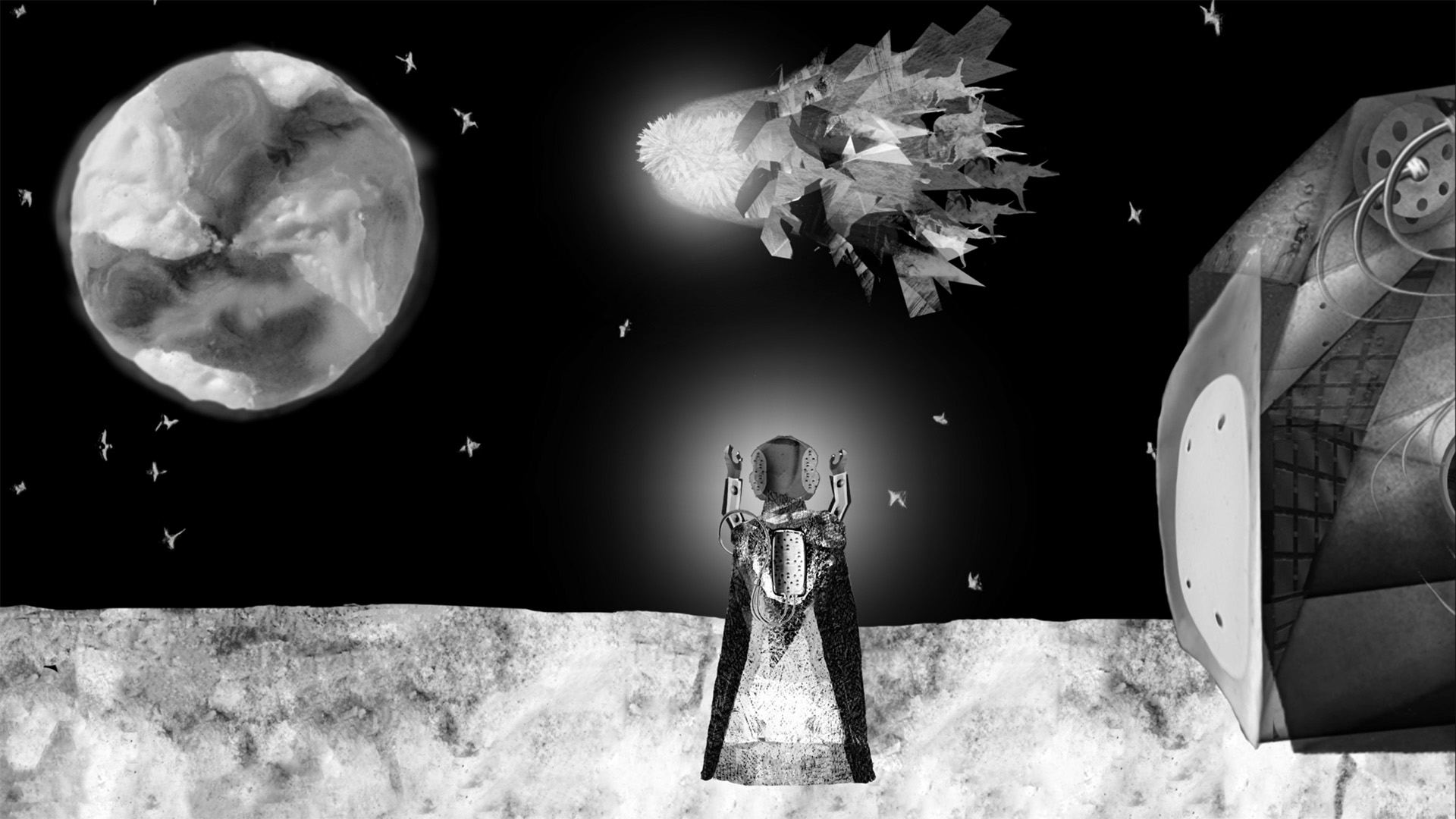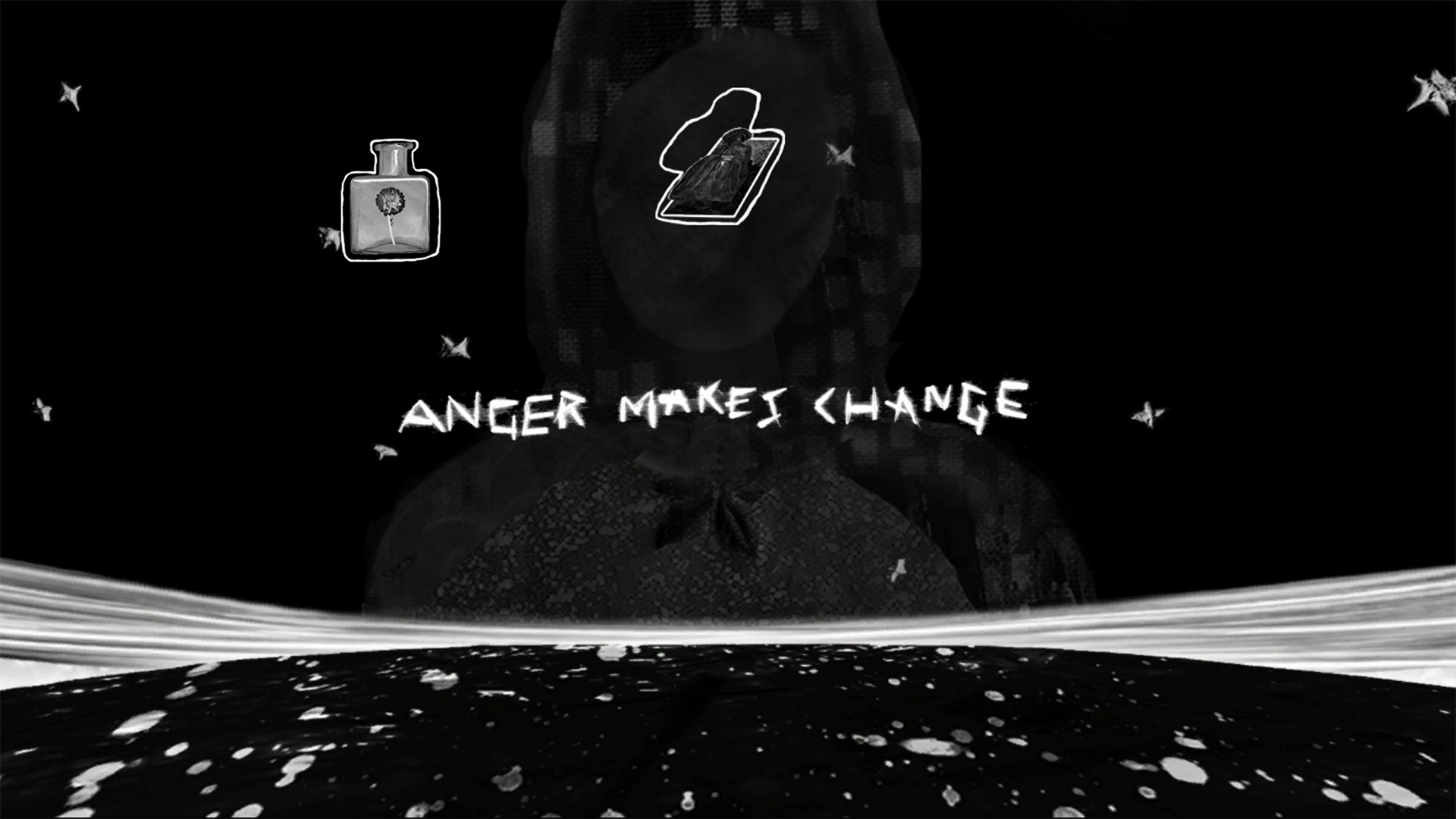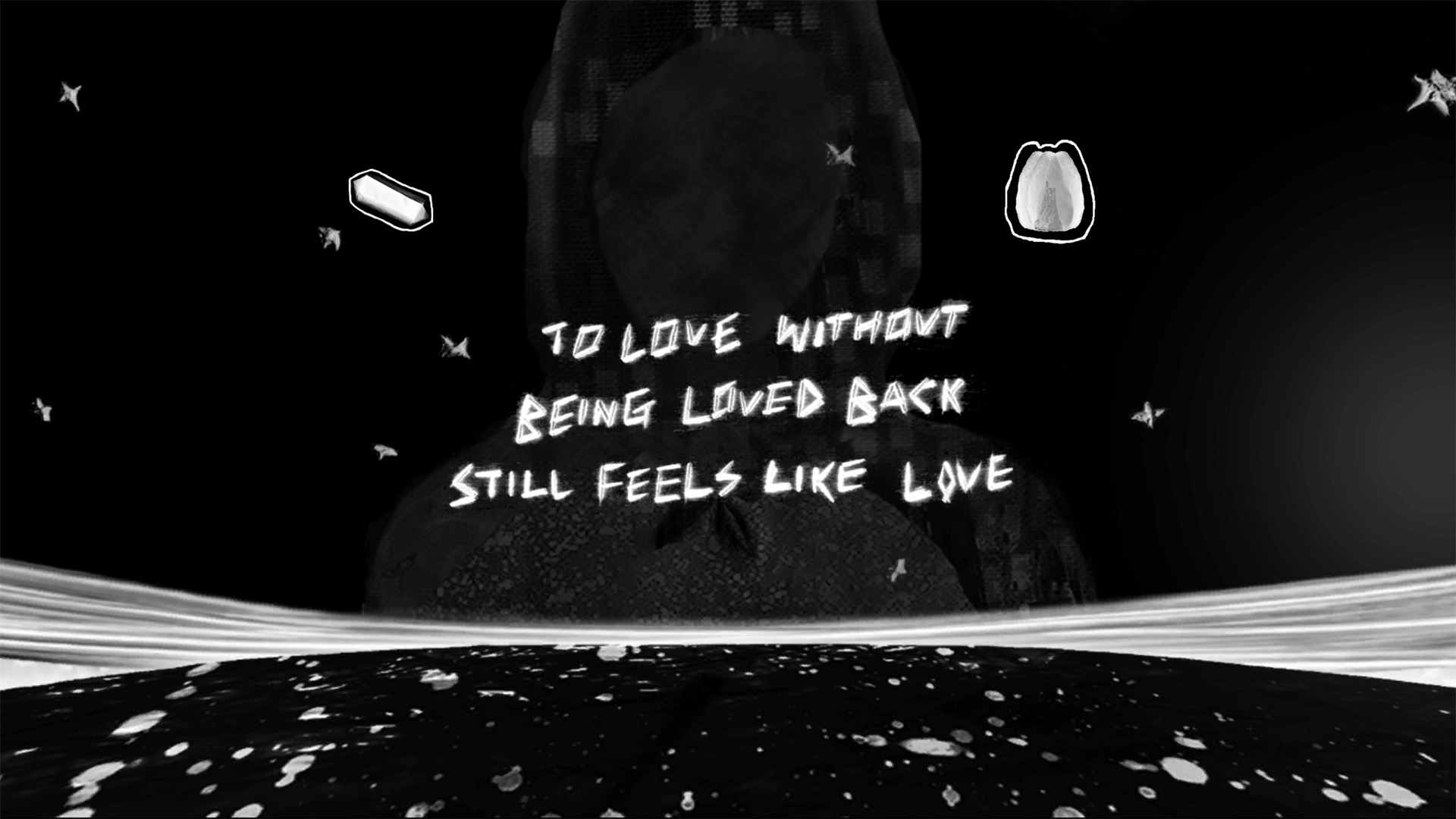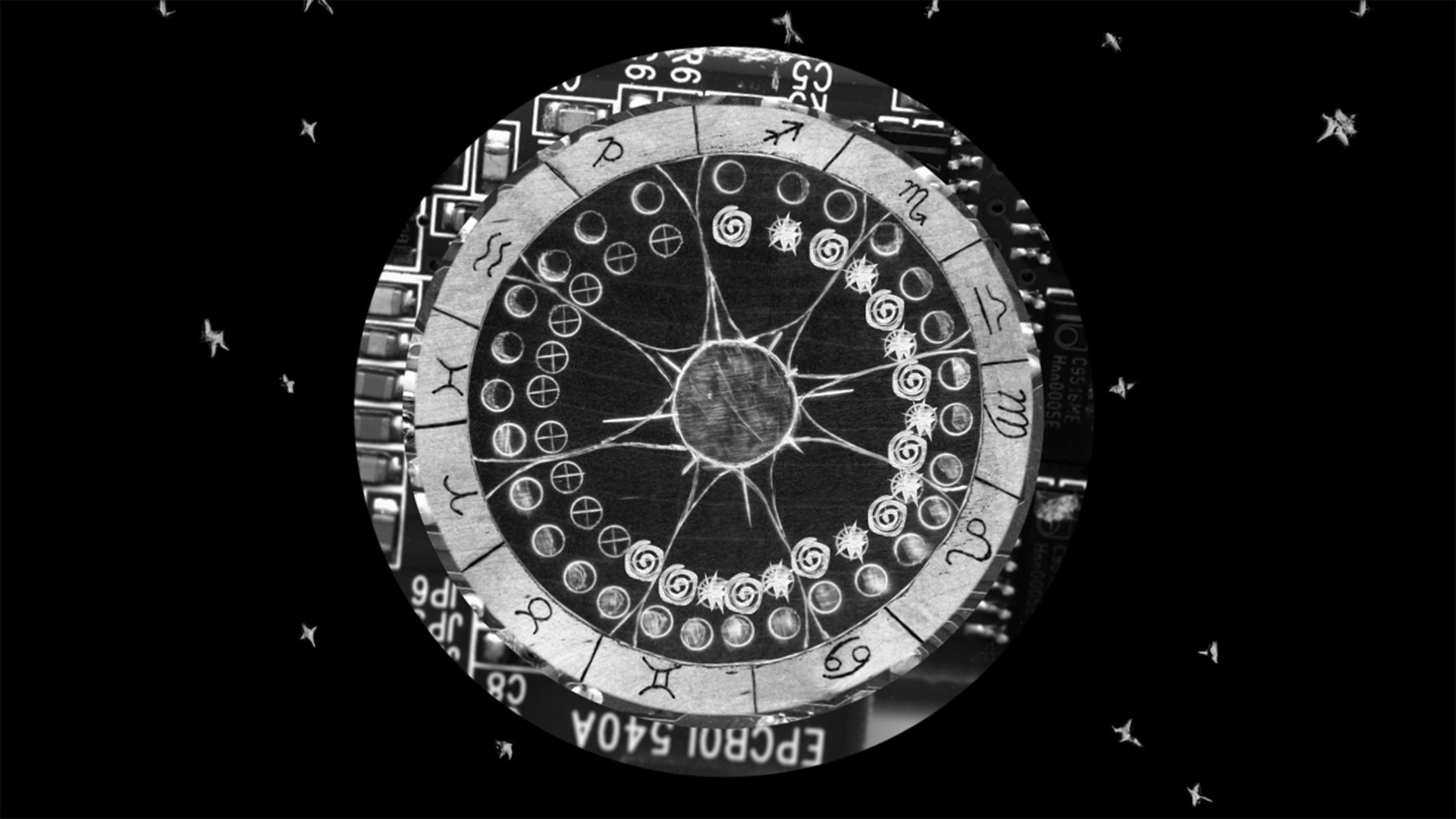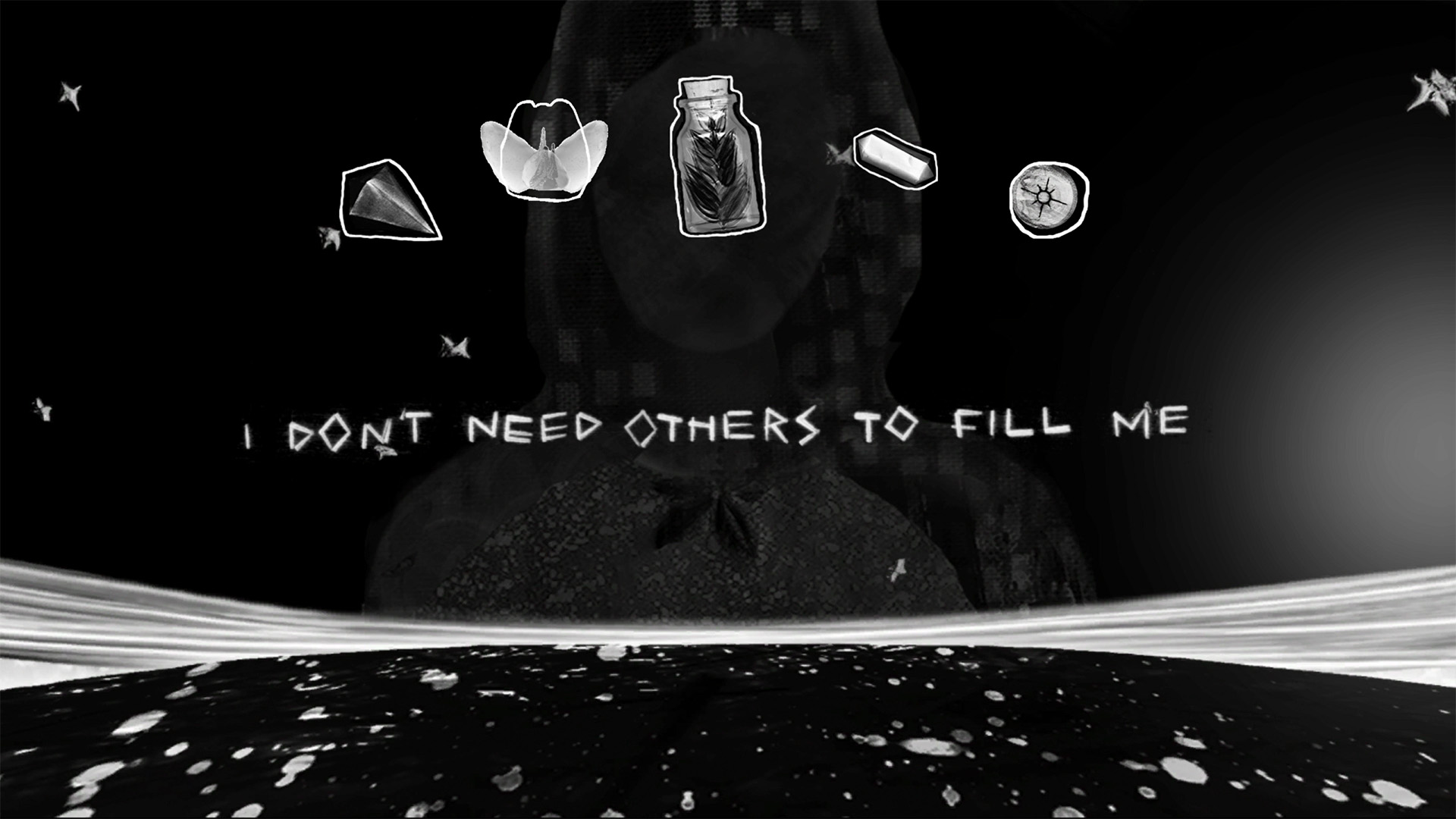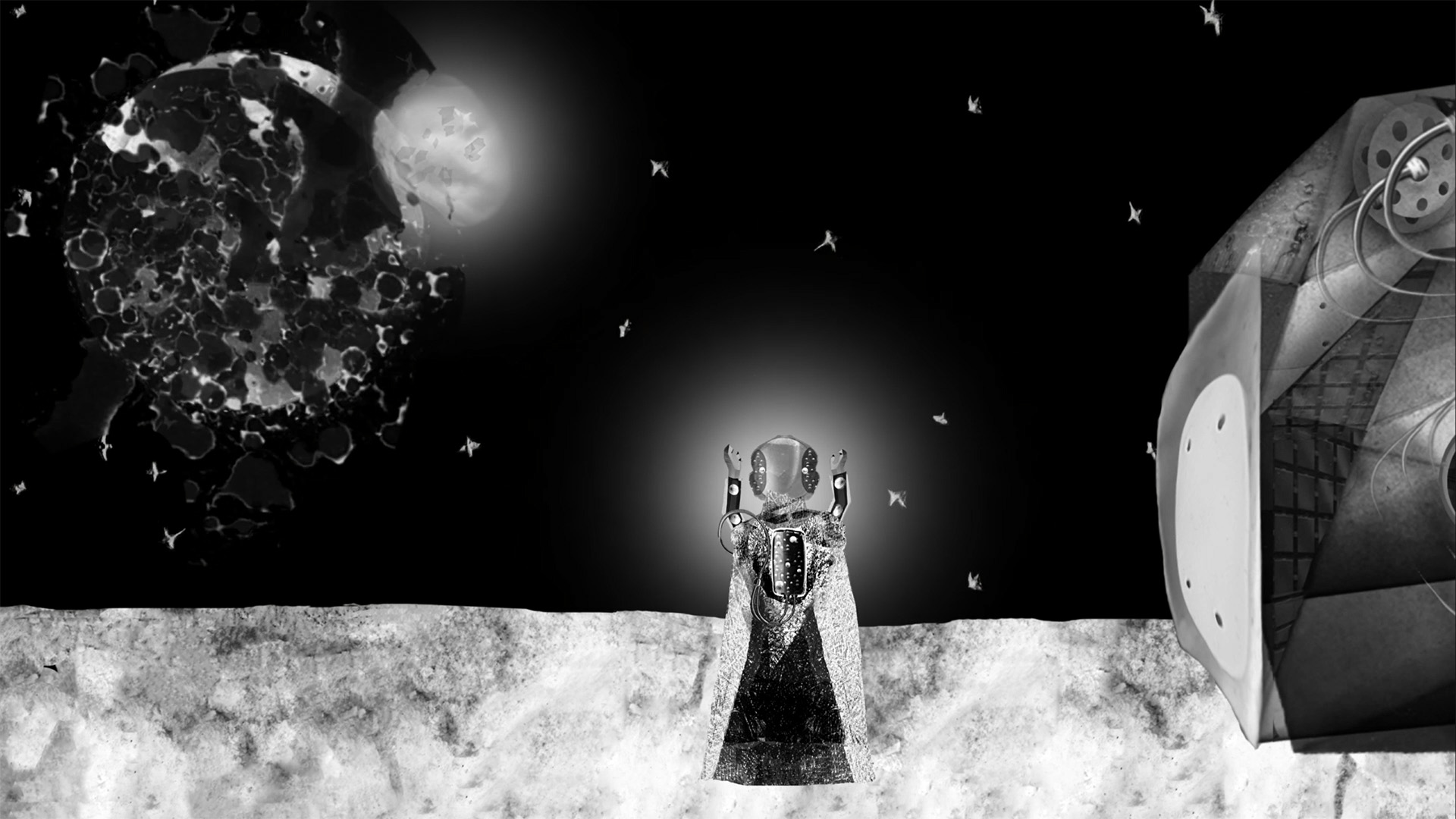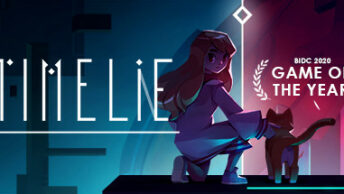Part interactive art, part experimental narrative, and part digital therapy, the lunar-themed Ritual of the Moon is ultimately a weightless experience.
Type: Single-player
Genre: Casual, Narrative
Developer: Kara Stone
Publisher: Ice Water Games
Release date: 18 April, 2019


Ritual of the Moon, which itself was released on a full moon, is a non-traditional narrative game that puts you in the spacesuit of a misunderstood witch who has been forever banished to the moon, betrayed by the very people she loved the most. Through meditative sayings and creative self-exploration, her backstory is slowly revealed, one day at a time, over the course of 28 real world days.
This may sound appealing on its cratered surface, but the actual game mechanics of Ritual of the Moon are frustratingly limited and repetitive. Still, I’ve never been so conflicted in reviewing a title before. Half of me wants to wax poetic about the deeper ideas contained in this game while the other half wants to yell at it for being such a flawed, restrictive and opaque experience. Even after completing the full cycle, I’m still unable to resolve this conflict, so will be doing a little bit of both in this review.
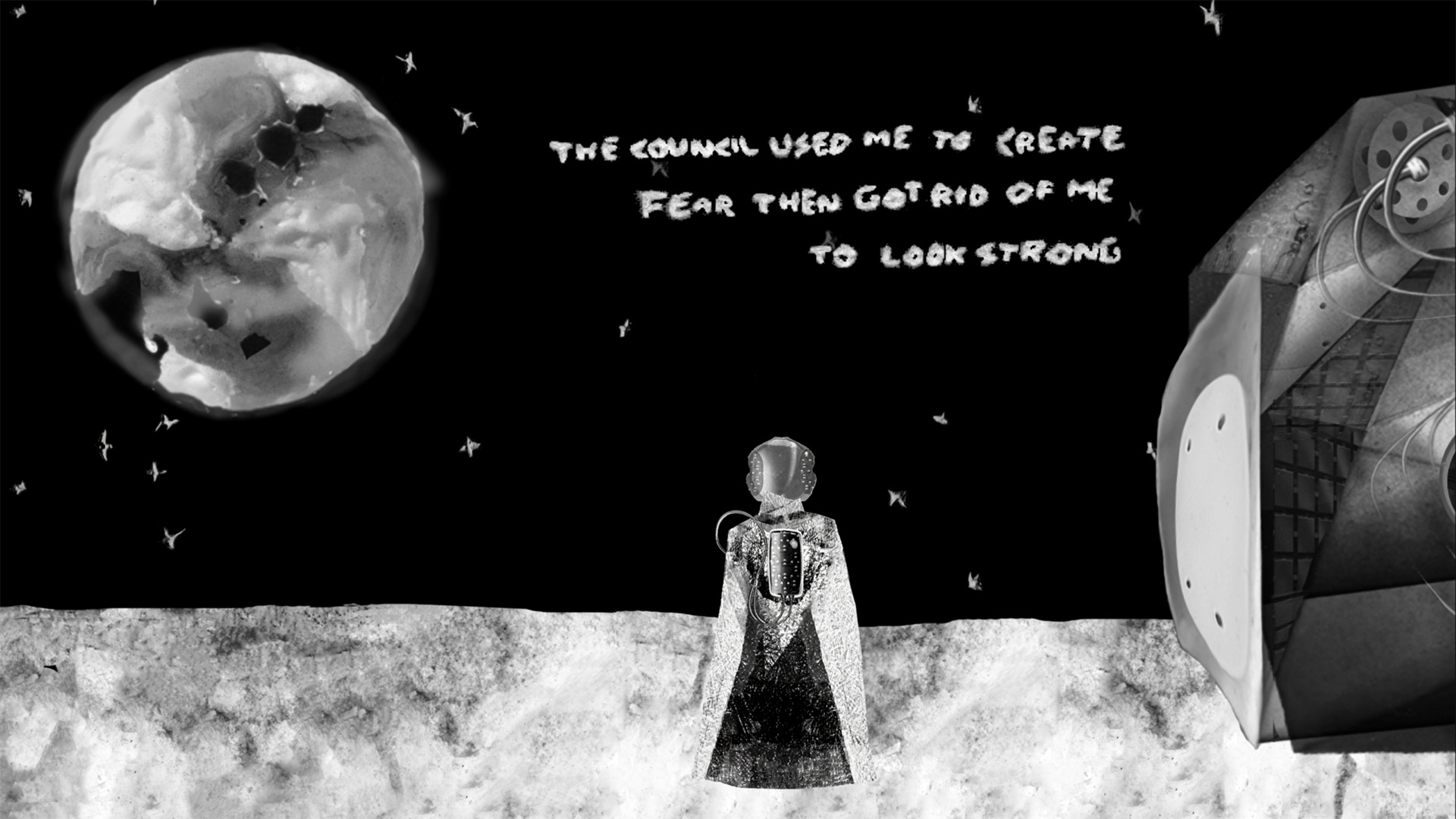
New Moon
Each short day the Witch stands outside gazing upon the earth. Clicking on the pale gray orb will reveal a little line of text about her backstory. Afterward, you move into a stranded spacecraft, where you engage in a mini-memory game using symbolic objects from her personal collection. These unveil a “connect-the-dots” style image which you’re free to trace however you see fit. Completing this task reveals a thoughtful message upon which to meditate, some are positive, others deal with darker thoughts. The final act of the day is to step outside, where a comet is hurtling towards the earth, and you have to decide whether to let it hit, or aim it elsewhere. This ritual repeats for the next 28 consecutive days.
Thematically, Ritual of the Moon raises the possibility of addressing some serious issues, but goes about it so obliquely that by the end I’m left unsure of exactly what I’m supposed to take from the experience. My conclusion is that the game is just a mirror: it only offers you what you bring to it in the first place. And I think that’s the point.
Waxing Crescent
First of all, is Ritual of the Moon even a game? I don’t think so, at least not by the expected definition of the term. It’s probably more accurate to call it interactive art. Or maybe it’s best not to label it anything at all, but for purposes of a review, I need some way to refer to this experience that I’ve had over the past month. For me, though, games are art, they are the creative medium that best expresses our modern digital era, and all the modern digital angst that accompanies it. It’s for this reason that I use these terms interchangeably, because I genuinely feel they are serving the same purpose: art and games can convey an experience that transcends the limits of reality. It’s because of this that I really want to like, even love, Ritual of the Moon, for being a title that’s not afraid to challenge the status quo, to make us rethink what the medium of games is capable of.
But just because something is called art does not make it exempt from criticism. In the end, I love the concept behind Ritual of the Moon, but the actual execution is incomplete at best, and openly antagonistic at worst.
First Quarter
At first glance, I don’t appear to be the target market for this game. I’m not a practitioner of fine art, I’m not a poet, nor am I a philosopher, I don’t belong to any important causes, and I haven’t attempted to make the world a better place for anyone but myself. I’m just a person, an ordinary person, flawed and probably broken, but just an unexceptionally ordinary person. And yet, I felt drawn to this title because I very much wanted to better understand myself, and at the same time, better understand the lives of others. It’s through the act of empathy that we can hope to gain clarity, to find our place on this small pale globe. And if we find that we don’t fit (which is certainly a thought that haunts me personally), empathy gives us the tools to build a better world, one in which we can, at the very least, call home.
Perhaps like many people, I struggle with negative thoughts. Being a pessimist works well when reviewing games, as those negative thoughts can be channeled into something constructive (though I’m sure the developers of games I’ve trashed feel otherwise). But when this negativity turns on myself, there is no outlet, and pessimism can quickly become suffocating. So, partly, I was curious to explore Ritual of the Moon as sort of a “mood tracker,” a way to perhaps better understand my own emotions and find a more positive outlet towards which to channel them.
28 days later, and the game has left me with more questions than answers. But, as a way to spark an internal dialogue, perhaps this constant stream of questioning is good… What does it mean to belong to a tribe, a community, or a society? How do we handle the baggage, history and conflict that comes with this belonging? What is our role in the world, and what do we do when these roles don’t fit our own sense of self? What does it mean to be human, and yet to be rejected by humanity? What does it mean to not be wanted, to be hopelessly alone? And is anger the only appropriate response? After having finished the game, what have I learned about myself?
I’m afraid it’s not a flattering portrait, but I made a promise that I would be totally honest both to the spirit of the game and to myself while playing it. It seems I’d rather destroy the world, than accept its rejection of me. Is this revelation anything that I didn’t already know? Not really, but it’s somehow comforting to see these inner struggles externalized, and perhaps, just a tiny bit of a release as well, like I don’t have to keep all of this negativity boxed up inside.
Waxing Gibbous
Ritual of the Moon is a great idea. But a great idea is just that: an idea. It takes execution to make it real, and the game is so awkwardly executed, that trying to fall in love with it can be an agonizing experience.
That’s not to say there aren’t things in it that successfully capture my heart and imagination. The music is original, haunting and beautiful. The soundtrack is available on its own, and is highly recommended, both as accompaniment to the game, and to be enjoyed outside of it as well.
The overall stylistic direction and handmade artwork are exceptional and immediately make the game stand out among the cosmos of other narrative titles. The use of texture, of unexpected objects layered into a multimedia collage, along with the decision to restrict the palette to black and white, evoke an ethereal mood that is equal parts foreboding and enchanting.
The words that you are presented with each day (inspirational sayings, meditative thoughts, probing questions, call them what you like) are thoughtful as well as evenly balanced, and I feel a certain connection with their message. They do stay with me throughout the day, perhaps more so than any other aspect of the game, so in that regard they’re an effective method to inspire and reassure me on those days where it’s all too easy to succumb to wayward thoughts.
Full Moon
Frequently, though, the user experience gets in the way and impedes any sense of unity with the game, its narrative, or main character. This clouds an otherwise beautiful game, making me feel as if I was being kept on the outside, instead of being invited onto a personal journey.
I need immersion; it’s in my bio, and it couldn’t be a clearer ideal for why I play games. Not escapism, that’s cheating; my goal isn’t to run from reality, but to better understand it. When you’re stuck in a life and a body that you feel is broken, it’s impossible to find understanding in anything; we’re too close to it, too mired in a myopic view of life. Games grant me the objectivity I need to disconnect, to take the long view, and thereby gain some hope of understanding. In this way, immersion can be like an out of body experience, a chance to escape the confines of what being a body entails, and thereby build a clearer understanding of how life truly looks. Perhaps, then, I need to be on the moon to better understand my own life here on earth.
Flaws or distractions in an experience can, and will, take me out of that heightened state, though. For example, as a movie lover, when a boom mic accidentally dips into the frame, or the reflection of the camera can be seen in a shot, it can take me out of the film, out of the moment. I love magicians, and tricks and illusions, but seeing behind the curtain, seeing the magnets and mirrors and false fronts ruins the sense of mystery. I love puppetry, but the focus should be on the crafted characters pantomiming on their tiny stage, not on the strings controlling them. And that’s the dilemma I find myself in while playing (if playing is the right word) Ritual of the Moon. The flaws, the limitations, the defiantly obtuse user experience, work against the desire to lose myself in the phases of its moon.
And as a creative way to explore deeper thoughts and ideas, how can I meditate on a game that tries so hard to keep me out? It’s even difficult to stay engaged in this ritual on a daily basis, since the time between plays is so great, and the time within the game is so brief. The game’s official description mentions that playtime each day is about five minutes, which I find overly optimistic. I averaged half that, sometimes less. Even then, Ritual of the Moon is the longest shortest game I’ve ever played.
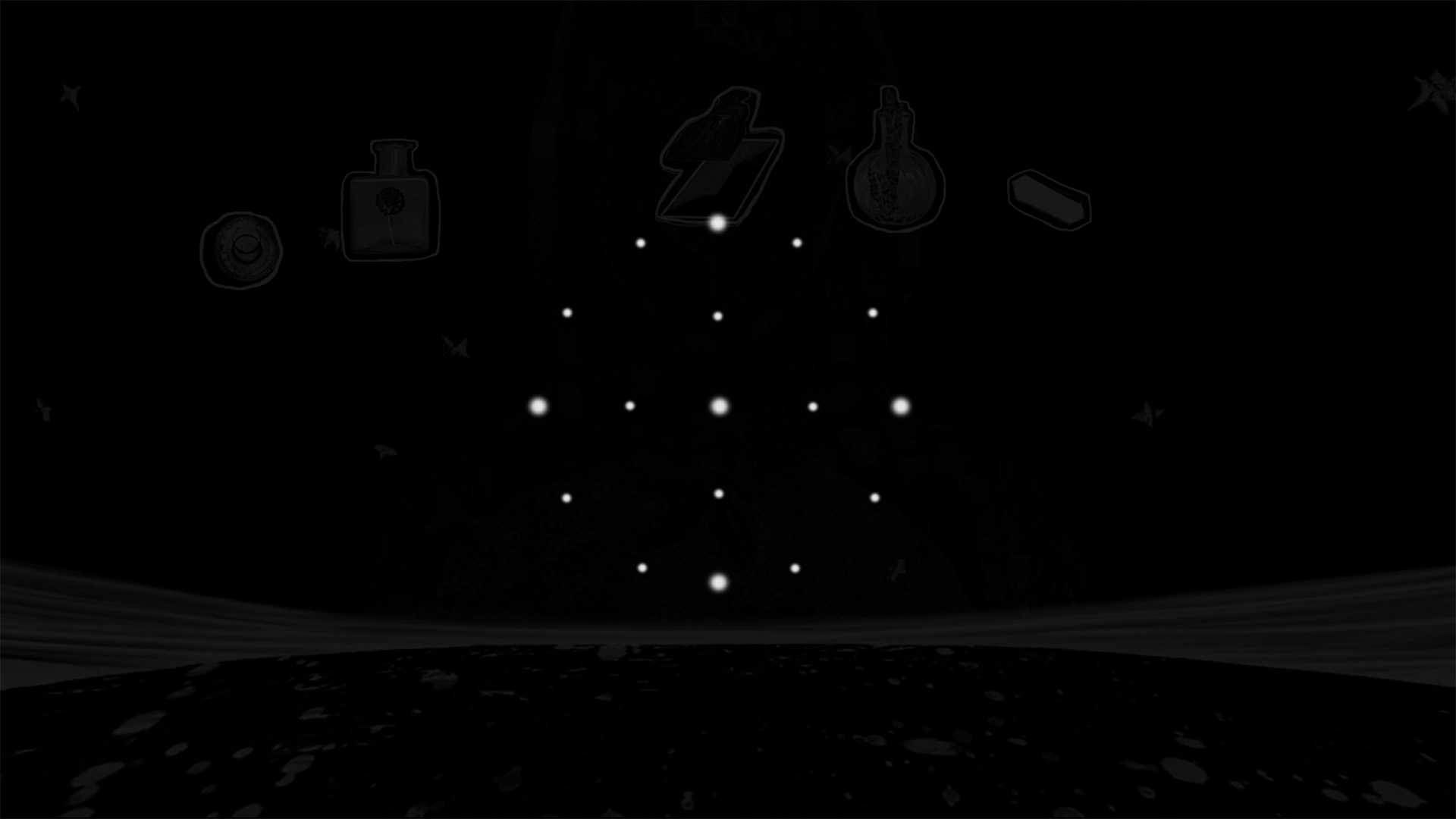
Waning Gibbous
The moon can be a hypnotizing object upon which to gaze, but myriad technical and design limitations keep Ritual of the Moon from being as mesmerizing as its namesake. For example, why are there no instructions? Why is there no menu? Why is the player not given guidance as to the mechanics of the game? Why is there no introductory explanation to the scenario? Why is even exiting the game hidden from the player?
As dead-simple as it is, controlling the comet wasn’t immediately clear either, leading me to accidentally hit the earth when it was not my intent. Also temporarily puzzling, is that when the day is done, there’s no button or visual cue to indicate how to leave the game, instead you’re supposed to intuitively know to hit the escape key.
Ultimately these things are forgivable because it’s not hard to figure them out after playing the game for a bit. However, what it does do is break the spell; when I’m suddenly faced with such unnecessary UI obstacles it immediately takes me out of the game, and whatever hypnotic effect that was cast over me suddenly vanishes.
A game that you can only play once every 24 hours does not lend itself well to trial-and-error or experimentation, and even one bug can ruin an entire precious day. Unfortunately this happened to me almost immediately, as early on I was locked out for a day due to a time glitch. Achievements were spotty as well; it took nine days to earn the “One Week” achievement (maybe time moves slower on the moon?).
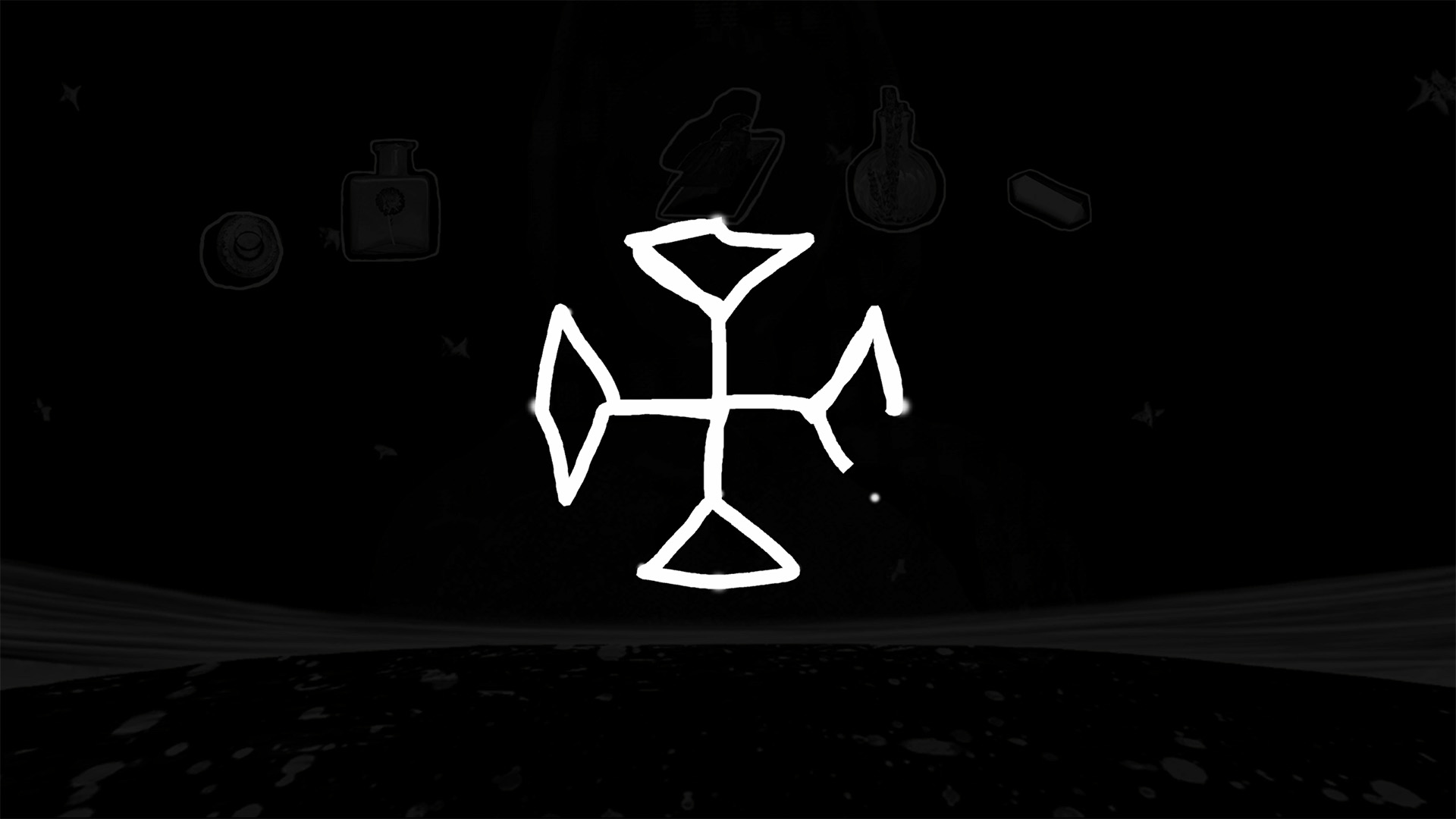
Most irritatingly, though, the drawing shapes repeated themselves, sometimes several days in a row. I’m not sure if this was intentional, or if the game chooses shapes randomly but without a method to prevent re-runs. In complex games I’m willing to be forgiving, but in a game this minimal, and let’s face it, this simple, how did these issues get overlooked? Or worse, if they were intentional design decisions what was the goal?
Although I love the overall text that accompanies the meditative exercises (the little sayings after completing the drawings), I was crushed to discover that these too repeat themselves. With such finite play time (only 28 chances), it felt like an entire day was wasted on something I had already drawn and read. I can’t help but wonder, is all of this intentional, and am I just too thick to grasp the introspective musings that repetition is supposed to convey?
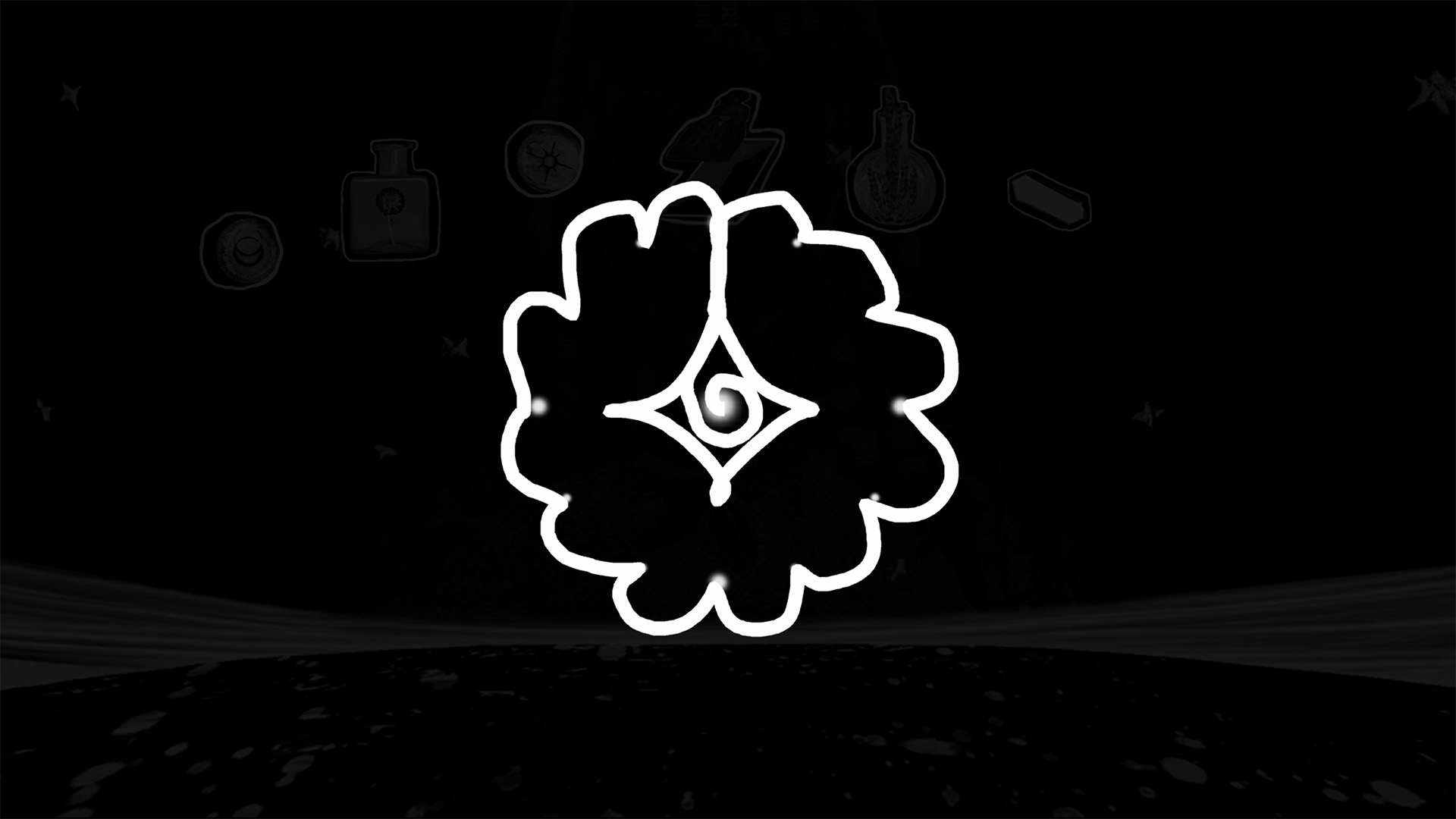
Last Quarter
The tasks in the game strike me as too arbitrary. Why is the player asked to draw? How does that connect to the struggle of the protagonist? How does that tie in with the lunar theme? How does that benefit me as a meditative exercise? It would be one thing if the drawings were saved to form a gallery of my doodles; that alone would be interesting to reflect back upon after 28 days; but no, after each one is completed, they vanish into the vacuum of space. There is no benefit to making a beautiful tracing, nor is there a consequence for hurriedly scribbling a bad one; it doesn’t affect the character’s journey or the progression of the experience, and it doesn’t change my own emotions as I make decisions for the day. Perhaps the intent is to force me to slow down, to breathe deeply, and really stop for a moment and think about what I’m doing and why. This would be most welcome as a meditative exercise in preparation for the big decision, but again, the repetition of patterns is spell-breaking, and the drawing experience is over so quickly that I didn’t get a chance to really get into the spirit of it.
Finally, what kind of replay does this game-by-way-of-art-therapy offer? There are multiple endings depending on how your “moods” fluctuate over the course of the entire cycle. I’ve faithfully stayed by the Witch’s side for the full lunation, and because I’m an endlessly curious individual, I decided to give it another spin. After finishing the game, you’re given the option to either start over, or start from the half-way point (which in itself is an interesting possibility). I choose the latter, which turned out to be a mistake. Due to yet another bug, I was locked out for about a week, until the devs mercifully released an update which un-bricked the game. Interestingly, there were enough unexpected surprises to keep me engaged a second time around, though by that point playing Ritual of the Moon became a strictly mechanical exercise; any passion, enthusiasm, or emotion had long since drifted away.
Waning Crescent
I try to avoid other reviews or commentaries on a game while I’m in the middle of playing it, so as not to influence my thoughts. After finishing Ritual of the Moon, though, I came across Alice Bell’s wonderful game-diary, and do recommend it as an alternative take to my insignificant ramblings. Perhaps my expectations are too literal, perhaps my imagination isn’t wide enough, because to be fair to the game, it would seem other players are able to connect with it in ways that I was not.
Likewise, I was curious enough about the creators, that I wound up playing an earlier title from Kara Stone, the earth is a better person than me. Although it’s a different style (more of a short visual novel), I found it much more engaging and personal. It’s less polished than Ritual of the Moon, and the writing is a bit clunky at times, but this awkwardness somehow made it seem more real, and I felt more able to relate to its main character than the Witch here.
Also to its potential credit, Ritual of the Moon is available on both iOS and Android. Maybe this experience is better suited for mobile devices: it’s so short that it lends itself well to intermittent plays, and might be a good app to have on hand for those times when the stresses of life are weighing you down. Being mobile, the moon-bound Witch would always be there for you as a counterpoint to the uncertainty of life here on earth. The lack of a full interface, too, might make for a more natural fit on a phone or tablet.
The game is released by Ice Water Games, a self-described “democratically run games label”, and I wholly applaud their mission to give artists and non-traditional games a larger platform from which to better reach players. Some of their other titles question the traditional expectations of gaming, much like Ritual of the Moon attempts to do, and include equally relaxing and thought provoking titles such as Viridi, and Eidolon.
Verdict
If it seems like I’m being overly harsh on this game, perhaps I am, but only because I genuinely cannot mask my disappointment. I see so much potential, not only in the concept and idea, but also in the visuals, that I’m heartbroken the end result feels creatively and technically inconcrete, incomplete and in some ways unfinished. I really do want to like this title, and I can try to come up with some sort of intellectual justification for heaping praise upon it, but the simple fact is that my raw reaction was one of initial enthusiasm which gradually waned over the course of 28 days.
If this game succeeded at anything, though, it’s in getting me to speak honestly about my own struggles with extreme self-negativity. So whatever I conclude from this experience, and however I end up rating this game/art/thing called Ritual of the Moon, what better praise is there than to say that it forced me to think, and to share these thoughts with others? I don’t know if any of these thoughts are worth sharing, but if you’ve stuck with this review up until this point, perhaps there are things in here you can relate too as well.
As for the moon itself, that lifeless rock that is so far out of our reach, it’s humbling that it has the power to bring us all just a little bit closer together. Throughout history there has never been a more universal symbol than the moon. Some see a face in the it, others a rabbit; but for better or worse, I now see a reflection of myself.

